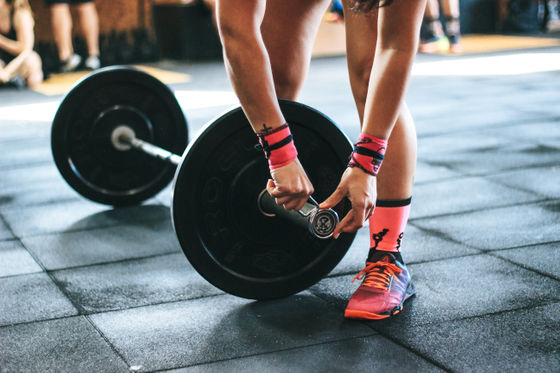What are the points to keep in mind when exercising after a long time?

The global epidemic of Severe Acute Respiratory Syndrome (COVID-19) has forced sports gyms to be closed in some countries. Christopher Williams, an associate professor of exercise science at Newcastle University, explains points to be aware of when a sports gym is reopened so that people who 'train muscles after a long time' do not get injured.
Heading back to the gym? Here's how to avoid injury after coronavirus isolation
The human body becomes healthy or unhealthy depending on the amount of exercise. According to Associate Professor Williams, physical changes occur as soon as you reduce the amount of exercise, and in a 2008 study , even if you did not exercise for just 10 days, muscle mass, muscle strength, physical function, and metabolic function decreased significantly. Is shown. However, on the other hand, a 2018 study also found that increasing exercise did not immediately change the body.
It takes a few or weeks of training to get back in shape, but Associate Professor Williams said, 'When you return to the gym, your muscles and joints may feel stiff and your breathing may feel heavy. In addition to that, there is a risk of injury if you perform high-intensity training or if you suddenly increase the load during training, 'he said, and be careful when training for the first time in a long time. Claims necessary. He explained that in order to prevent such injuries, it is necessary to start by preparing an exercise routine.

According to Associate Professor Williams, when training for the first time in a long time, you should start with 70-80% of the previous load. For example, if you were doing a 50kg bench press before you stopped training, Williams recommended that you start with a bench press of around 35kg after resuming and then consider gradually increasing the load. Associate Professor Williams also notes that warm-up is essential before resuming training.
In addition, the physical response to exercise is greatly related to the amount of sleep, stress, malnutrition, alcohol, etc. during the interruption period, so if sleep deprivation continues, for example, the intensity of training may be reduced, resulting in unhealthy situations. He explained that if he continued, he should further reduce his training intensity. He said that you should check your condition before and during training to decide whether to increase or decrease the load.

It is said that back pain, back pain, knee pain, etc. often occur after training for the first time in a long time, but Associate Professor Williams said, 'The cause of these pains is not always injuries, and in most cases, the body is immediately. It will heal, 'he said, arguing that it would be beneficial to continue exercising as much as possible rather than interrupting training altogether. However, he states that he should go to a medical institution whenever the pain continues to increase for more than a few days.
Related Posts:
in Note, Posted by darkhorse_log







